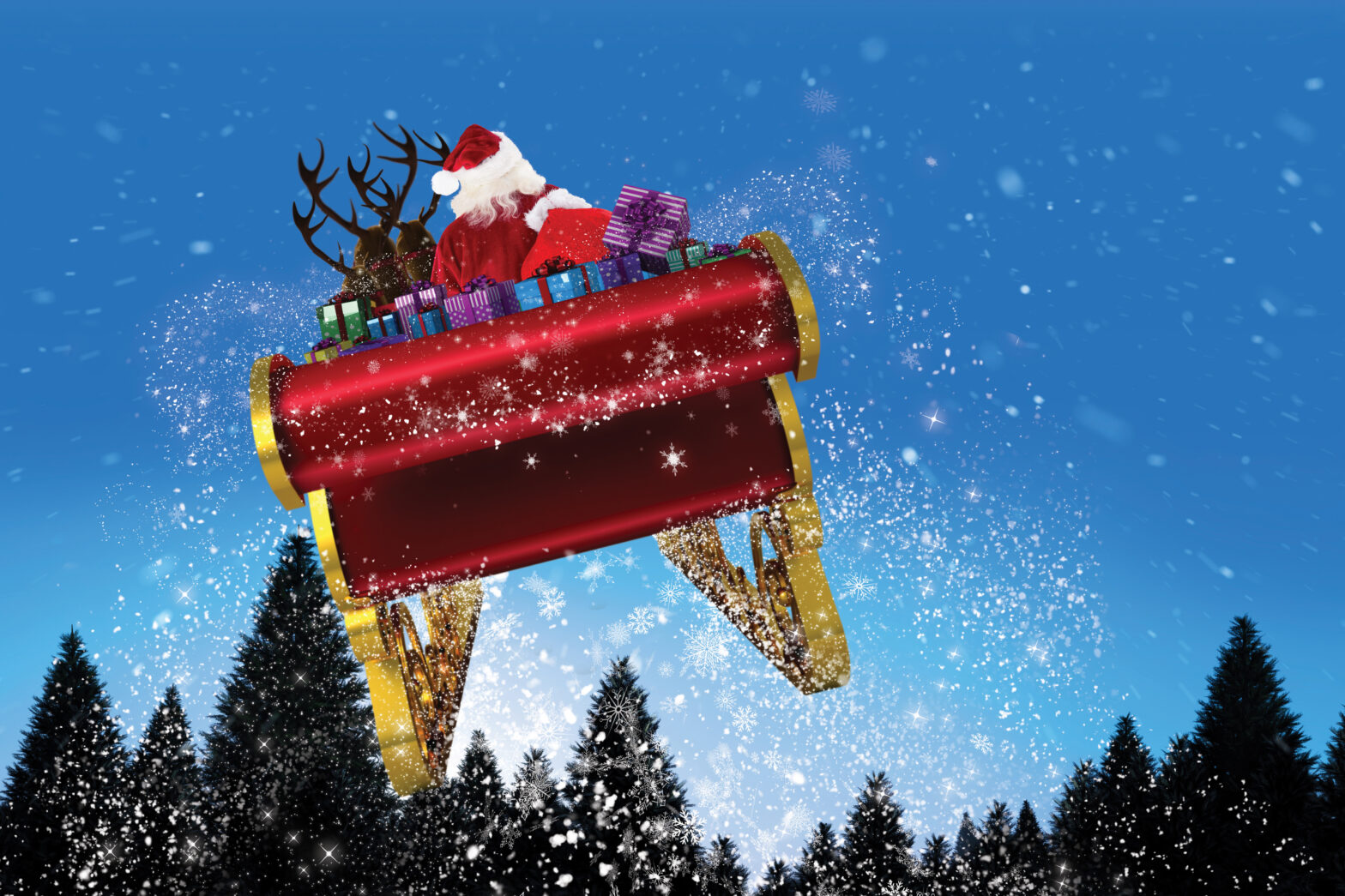He’s big, jolly and jiggles his belly like a bowl full of jelly; and as one of the world’s most famous entrepreneur philanthropists, Santa Claus also runs a pretty slick, global operation from his Arctic base.
But if Father Christmas operated from the wilds of Scotland, rather than the North Pole, would HMRC consider him to be in business and therefore liable to tax?
In order to do this, we’ll apply the badges of trade to the way he operates and decide whether that is indeed a business, taking the overall picture that the nine badges give:
Badge 1. The intention to make a profit
If you intend, by selling your wares, to recoup all the costs you’ve incurred in making those sales and have a bit over to spare, then your intention is to make a profit. On its own that doesn’t conclusively prove you’re trading, but it’s a clear pointer that you’re in business if you do intend to make a profit.
Does this apply to Santa? No, because he doesn’t make sales. He gives gifts and, to the best of anyone’s knowledge, he’s not paid for them!
Badge 2. The number of transactions
If there are a lot of similar or identical transactions happening frequently, regularly, or systematically, that’d point to trading.
Does this apply to Santa? Yes, because he operates at the same time each year and he gives a great many gifts!
Badge 3. The nature of the asset
HMRC also looks at what is actually being sold. If the item can only give enjoyment if it’s sold and turned into cash, the business is more likely to be trading. If the item would give an income, or give pride of possession, then to sell it is less likely to be considered trade. For example, an organisation selling toilet rolls is very likely to be trading, because toilet rolls don’t of themselves deliver enjoyment! But the sale of a painting, or a piece of jewellery, that you’ve enjoyed owning, would be less likely to be considered as trading.
Does this apply to Santa? No, because presumably the elves would enjoy playing with the toys they have made if one year the reindeer all came down with flu and Santa couldn’t take the sleigh out.
Badge 4. The existence of similar trading transactions or interests
If an individual has a trade selling similar items to what’s being sold in this case, then the transaction in question would be part of a trade (for example, if a florist sold a potted plant on eBay, the potted plant would be a sale of the florist’s trade).
Does this apply to Santa? No, because he doesn’t have any other trade, far less a similar trade.
Badge 5. Changes to the item
The question to ask here is whether the item was repaired, modified or improved to make it more easily saleable, or saleable for more profit? If the item is sold in the same condition in which it was acquired, it’s less likely that it was sold for a trade.
Does this apply to Santa? Yes, because the elves make the toys he gives out.
Badge 6. How the sale was carried out
If the sale was carried out in a way that’s typical of trading organisations, for example sale through a retail shop or e-commerce site, this points to a trade being in existence.
Does this apply to Santa? No – Santa doesn’t make sales, he gives gifts.
Badge 7. How the purchase was financed
HMRC will look here at whether the potential trader had to borrow money to buy the item, which can only be repaid by selling the item on again. Case law views this as pointing to a trade.
Does this apply to Santa? Nobody knows how he acquires the raw materials for the elves to make the toys, so we don’t know the answer to this either!
Badge 8. Length of time elapsed between the purchase and the sale
Assets that are bought to be sold as part of a trade are usually sold quickly.
Does this apply to Santa? Yes for some of the toys, and no for others – some of them will be made by the elves at the last minute in December, but others could be made up to a year in advance.
Badge 9. How the asset was acquired
If the item being sold was inherited by the seller, or given to the seller, then this points away from trade. The seller is more likely to be in business if he bought the items to be sold.
Does this apply to Santa? The toys were built by the elves, but nobody knows where and how the elves got the raw materials! So again we don’t know how the assets were acquired.
So is Santa in business?
HMRC will look at all the nine badges of trade and apply them to the situation in question, then make a decision on whether the individual is in business.
When it comes to Santa, of the nine badges we have four Nos, two Yes’s, two nobody knows’s, and one mixture.
I think that means the answer would be No! Santa is not in business, because overarchingly, he is not making sales – and he therefore wouldn’t need to pay any tax.
Emily Coltman FCA is chief accountant at online accounting system company FreeAgent.







